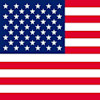Ora Belle “Ora Mae” Washington
Black Tennis Hall of Fame ›

Washington moved to Philadelphia in the 1910s as part of the Great Migration. She lived with her aunt and supported herself as a maid. She began playing tennis at the Germantown YWCA, a place that was central to Washington’s formation as an athlete. Washington began playing tennis in the early 1920s. Her earliest success came in 1924 when she won the Wilmington, Delaware city championship in singles, doubles, and mixed doubles. A year later, her career as a star tennis player truly began when she won her first title in the American Tennis Association national tournament. She partnered with Lula Ballard to win the women’s doubles title.
Washington went undefeated in her 13 years of play in the ATA (1924-1936). She won a total of 23 ATA national crowns, including eight women’s singles (1929-1937), 12 doubles (1925-1937), and 3 mixed doubles titles. Her style included using an unorthodox grip halfway up the handle, which she would use to chop at the ball with an abbreviated swing. She was also a basketball player for the Philadelphia Tribunes, the premier African American women’s basketball team in the 1930s.
Bob Ryland claims that Washington was one of the best players who ever lived. “She was nice, but she was mean on the courts,” Ryland states. “She was like Serena Williams, the Althea [Gibson] of her time,” says Arthur Carrington, ATA historian and author of Black Tennis: An Archival Collection 1890–1962. Taking on all-comers, Washington was virtually unbeatable for over a decade. She was reported to have challenged Helen Wills Moody—the white world champion—to a match on several occasions, but never received a reply. Despite Washington’s desire to play in USLTA tournaments, the organization maintained their policy of racial segregation until 1948. Washington retired from sports a year prior after she and partner George Stewart defeated Walter Johnson and upcoming superstar Althea Gibson to win the 1947 ATA mixed doubles title. Some claim that Washington was quietly persuaded to retire from tennis, as her total dominance was thought to discourage newcomers to the sport.
In 1930, Washington got her start in basketball with the Germantown Hornets in Philadelphia, Pennsylvania. The Hornets were a local team formed at the first Young Women’s Christian Association for Blacks. With Washington’s exceptional skill, the Hornets won the Colored Women’s National Championship title for the 1930 to 1931 season.
Soon after, Washington joined the newly formed Philadelphia Tribunes as its center player. She was considered one of the team’s most valuable players and was often its top scorer. Washington was fast and dribbled the ball well enough to beat opponents from one end of the floor to the other with ease. With Washington, the Tribunes promptly won 11 consecutive world championships. She only lost six games during her 18 years with the Tribunes, all of which were to men’s teams. The Tribunes regularly upended white teams, black teams, college teams, and teams from the South during the era of Jim Crow. Washington was always the focal point of the offense, the greatest player on the greatest team of the Black Fives Era.
Washington’s success on the tennis and basketball courts has been widely recognized. Arthur Ashe declared she was, “the first black female player to dominate a sport.” She was inducted into the Black Athletes Hall of Fame in 1975. In 2009, she was inducted into both the Women’s Basketball Hall of Fame as well as the Black Tennis Hall of Fame, respectively. She was inducted into the Naismith Memorial Basketball Hall of Fame in 2018.
Comments
The initial launch of Breaking Boundaries included 95 individuals representing 25 nations. The exhibit continues to expand with many more inspiring stories. Fans are encouraged to submit their own suggestions of athletes and contributors for inclusion through the form below.




